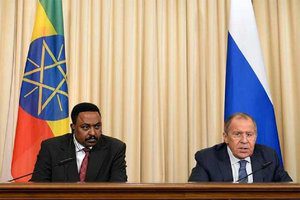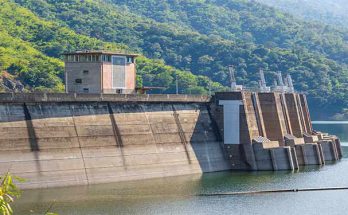
The spread and depth of the Russian presence in Africa is momentous as it seeks to expand its presence and influence in the last investment frontier zone in the world – Africa.
Russia’s volume of trade and economic interaction with Africa is inferior to most of the big players like China, the US, the EU, India, Turkey, Brazil, Iran, the Gulf countries and South Korea. Currently Russia’s trade with Africa is less than $12 billion. Although, in some areas, competition between Russia and other players is serious as during the heyday of the former Soviet Union it held a strong influence in Africa. Now with the dissolution of the USSR, under Vladimir Putin Russia has new aspirations for Africa which is reflected in Foreign Minister Sergey Lovrov’s 2018 visit to several African countries.
Russia in Ethiopia
Lavrov’s recent tour to Africa appears to have ignited an interest in re-establishing former Soviet-era ties with Ethiopia, with which Russia has longstanding diplomatic relations dating back to the 19th century. As part of its policy of exporting atomic power facilities Lavrov pushed for a nuclear reactor to be built in Ethiopia by Russia. In addition, he called for Russian membership in the African Union’s Mechanism for Police Cooperation (AFRIPOL).
Russia has economic interest in Africa’s large population as it is forecasted to grow to 2.4 billion by 2050 and more than 4 billion by 2100, which provides a massive market for Russian goods and services. The fact that the middle class is growing in leaps and bounds in Africa makes this market even more lucrative for Russian businesses. Since more than 620 million people in Africa do not have access to electricity, Russia’s nuclear industry has scope to attract the potential market. Ethiopia is one of the major countries that Russia has approached to sound as potential clients.


